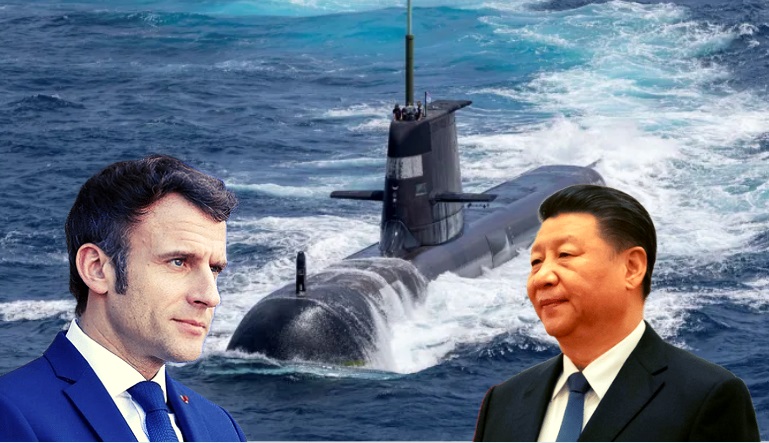The Joko Widodo-led Indonesia has done one thing quite right, and that is focusing on its military expansion. The country is not ready to compromise its territorial integrity and sovereignty in face of increased Chinese aggression. The Indonesian Navy has revealed plans to buy Scorpene-class submarines from France, adding another reason for China to be concerned regarding the ASEAN nations becoming militarily strong.
The Scorpene-class submarines are produced by Naval Group in France and Navantia in Spain and have a modular design that allows them to carry a high payload while reducing staffing and lifecycle costs.
The diesel-propelled boats measure 66 meters to 82 meters in length, displace 2,000 tons, carry a crew of 25 to 31 members and feature the SUBTICS Combat Management System. On February 10, PT PAL of Indonesia and Naval Group of France inked a preliminary agreement to collaborate on the building of two Scorpene submarines and the establishment of a joint research and development facility in Indonesia.
Both parties hope to finalise a contract by the middle of 2022 to help with the integration of weapons and systems onboard the submarines, as well as the provision of training for operation, building, and sustainment with the goal of knowledge transfer. The contract could potentially serve as a springboard for the building of two further Scorpene submarines in Indonesia.
Indonesian armed forces and their efforts to maintain regional dominance
Indonesia’s armed forces are also going to shift their headquarters in the East Kalimantan province. The army leadership and its supporting infrastructure will follow suit. To supplement the two existing regional commands (KODAMs), the army will create a new Capital Security Regional Command (KODAM PIK). While the Navy has proposed a new ‘armada-level’ force, a new division-level marine unit and a third primary naval base in Kalimantan.
The development of new naval port facilities and airfields is also being considered by the top leadership. The country’s Airforce will also ramp up its presence in the region. Radar and missile defence units along with a special forces battalion and two aviation squadrons could be established near the new capital. Major platforms will be deployed in the area, including possibly up to 16 new F-16V fighter aircraft.
Read more: The reason why Indonesia is moving its capital from Jakarta to Nusantara
Indonesia’s military, which was previously dominated by the army, is now focusing on ships and aircraft to protect its islands and vital straits, including Sunda, Lombok, and Makassar, as well as part of the crucial Malacca Strait, which connects the Indian Ocean to the Pacific.
Increased naval spending
Indonesian Defence Minister Prabowo Subianto recently travelled to India and South Korea to strengthen bilateral ties. Defence Minister Prabowo Subianto has signed contracts for two British Arrowhead 140 frigates to be built at the state-owned PT PAL shipyard in Surabaya, as well as six new Italian FREMM multi-role frigates and two modified Italian Navy Maestrale-class light frigates.
Read more: Joe Biden cancels the USA’s alliance with Vietnam, Indonesia and Singapore to please China
Indonesia’s naval strategy and limited resources necessitate the maintenance of a substantial submarine fleet. The country’s Archipelagic Sea Defense Strategy highlights the necessity of having the strategic and operational reach to operate without warning in areas outside Indonesia’s borders.
Submarines are an excellent alternative to surface vessels because Indonesia lacks the means to establish a large blue sea fleet. A crisp analysis was provided in Asia Times:
First, as stealth platforms, submarines provide greater deterrence than other naval assets, and their long-range strike capability provides a degree of force projection.
Second, Indonesia has a long history and extensive experience with submarines, having operated them since 1959.
Third, Indonesia’s submarine programme is an important part of the country’s domestic shipbuilding sector and one of the country’s seven defence priority programmes.
France has supplied Scorpene submarines and Rafale fighter jets to India, as well as Rafales to Indonesia. These arms transactions could be a reflection of the three countries’ common interests. Meanwhile, Indonesia has traditionally pursued an independent foreign policy and developed defence capabilities without becoming unduly reliant on a single source.
As a result, Indonesia’s purchase of Scorpene submarines and Rafale fighter jets could become yet another concrete focal point in the developing trilateral defence partnership between Indonesia, France, and India. These countries all have democratic principles in common, but they want to maintain their strategic independence and national interests without becoming unduly reliant on the United States.
